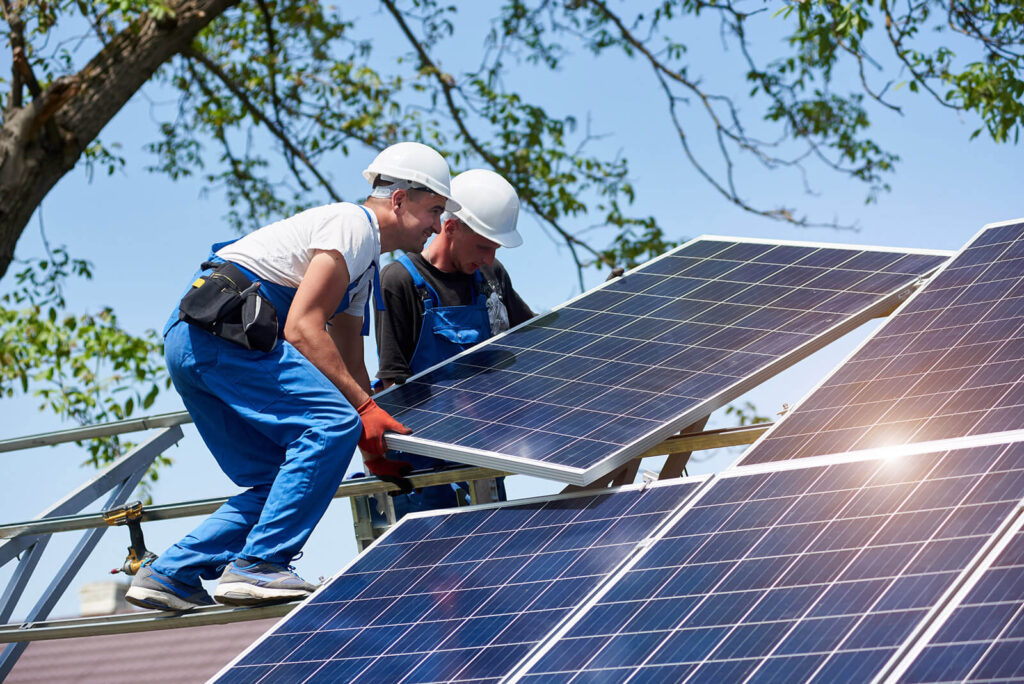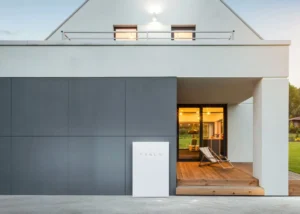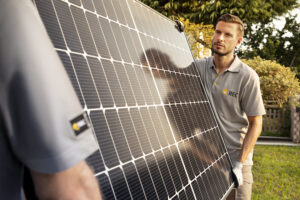TL;DR
- Choosing the right solar panel installer is key for safety, efficiency, and long-term savings.
- Look for licensed, CEC-accredited professionals with proven experience in both residential and commercial solar installations.
- Don’t rely on the cheapest quote – compare system size, components, and warranties for real value.
- Ask about product and workmanship warranties, after-sales support, and who handles maintenance or claims.
- A qualified solar panel installer ensures your system performs efficiently and delivers strong returns for decades.
As more Australians embrace renewable energy, the number of solar panel installers in the market has exploded. From small local providers to leading solar companies, the options might feel endless – and getting the wrong solar panels installed could mean higher electricity bills, poor efficiency, or even safety risks.
This guide helps both homeowners and businesses make informed decisions when choosing a solar panel installer. Whether you’re comparing a residential solar installer or a commercial solar installer, we’ll cover what to look for, red flags to avoid, key questions to ask, and how to balance cost versus long-term value.
By the end, you’ll understand how to find an installer who shares your passion for sustainability – and helps you save money while building a greener future.
Why Choosing the Right Solar Panel Installer Matters
Your solar system is only as good as the person who installs it. Even the best solar panels can underperform if installed incorrectly, leading to reduced energy generation, safety issues, or voided warranties.
A qualified solar panel installer ensures your system meets Australian Standards and delivers optimal performance in Brisbane’s sunny climate. Poor installations can create wiring hazards, leaks, or long-term electrical faults – issues that quickly eat into your potential savings.
When it comes to residential solar versus commercial solar panels, the differences matter. Larger commercial solar installations involve greater system size, structural load assessments, and compliance requirements. Some advanced solar batteries also require accredited installers certified by the battery manufacturer to maintain warranty coverage.
Ultimately, the solar panel installer you choose affects your system’s output, reliability, and long-term return on investment – making experience and accreditation just as important as price.
Key Credentials & Certifications to Look For
Before signing anything, verify your installer’s qualifications. In Queensland, solar work must be performed by a licensed electrical contractor – and in some cases, a builder’s licence is also needed for structural work.
Look for installers accredited by the Clean Energy Council (CEC). This ensures they meet national standards for solar installation services and renewable energy compliance.
Experience matters too. A reputable residential solar installer or commercial solar installer will have several years of experience with solar systems, plus a portfolio of successful installations. Ask how many solar panels in Brisbane they’ve installed and what types of inverters or battery storage systems they commonly work with.
Manufacturers often provide brand-specific certifications – for instance, only authorised installers can connect certain solar batteries or inverters without voiding warranties. Ensure your chosen solar panel installer can prove this accreditation.
Choosing an installer who understands product compatibility, warranty terms, and local grid requirements ensures a smoother installation – and fewer headaches later.
Comparing Solar Panel Installation Quotes: What to Ask & What to Check
Always get at least three quotes for installing solar panels at home – and more for commercial properties. Remember: two 10 kW solar power systems might look the same on paper but vary dramatically in component quality, system size, or installation costs.
Ask whether a site visit is included. A thorough solar installer should inspect your roof’s condition, tilt, and orientation, assess shading, and determine the best position for your inverter and cabling.
Each quote should outline:
- System size (kW) and panel/inverter brands
- Warranties on equipment and workmanship
- Cost breakdown for materials and labour
- Government rebates, such as the STC rebate
- Predicted energy generation and payback period
Comparing quotes properly ensures you’re evaluating value – not just the upfront cost.
What Makes a Quality Installation: Technical & Practical Considerations
A quality solar panel installation starts with design. Factors like roof orientation, tilt angle, shading, and wiring layout affect how much solar energy your system produces. The solar panel installer should also explain your inverter type – whether string, hybrid, or micro – and how it suits your property’s energy needs.
Workmanship matters. Reliable solar panel installers are transparent about who completes the work – whether in-house technicians or subcontractors – and follow strict safety standards. Neat cabling, weather-sealed junction boxes, and tidy mounting all indicate professionalism.
In commercial solar environments, additional checks apply: electrical capacity, roof load tolerance, and system scalability for future solar and battery upgrades.
The goal is a safe, efficient system that maximises self-consumption and minimises your electricity bills over time.
Solar System Warranties, After-Sales Support & Performance Guarantees
A trustworthy solar company will back its products and workmanship with solid warranties.
- Product warranties cover manufacturing defects in panels or inverters (typically 10–15 years).
- Performance warranties guarantee power output – usually around 25 years for solar panels.
- Workmanship warranties protect you against installation faults, often 5–10 years.
Read the fine print: some warranties are backed by overseas manufacturers without Australian support. Always confirm who handles warranty claims – the retailer, installer, or manufacturer.
Top solar installation companies also provide after-sales care, including monitoring systems, maintenance services, and performance checks. Reliable solar installation support ensures your solar power system keeps running at peak efficiency long after installation.
Residential vs Commercial Solar Installers: What’s Different?
While both help customers harness solar power, the scale and complexity differ.
A residential solar installer typically designs smaller systems tailored to household energy consumption, aesthetics, and budget. They focus on roof-mounted setups, smart solar batteries, and optimising feed-in tariffs for Brisbane residents.
A commercial solar installer, meanwhile, handles larger systems – often hundreds of panels – requiring engineering approvals, grid connection agreements, and advanced energy monitoring. These systems are built for business operations that demand high reliability and potential energy independence.
Commercial clients may also qualify for unique solar rebates or financial incentives, making professional expertise essential.
How to Prepare Before Contacting Solar Panel Installers
Before you start requesting solar quotes, take stock of your energy needs. Review your electricity bill to understand usage patterns and potential annual savings.
Check your roof’s size, angle, and shading. If you’re in Queensland homes or other Australian capital cities, local building codes and climate factors (like Brisbane’s sunny climate) will affect performance.
Research solar rebates, incentives, and grid-feed options. Set a realistic budget and decide whether you want solar battery storage now or later.
Finally, prepare key questions for your chosen solar panel installer:
- Are you a new energy tech approved seller (NETCC)?
- What brands of panels and inverters do you use?
- Who completes the installation?
- What warranties are included?
Taking these steps ensures a smoother, hassle-free experience and helps you find a solar panel installer who genuinely cares about your project.
Frequently Asked Questions
Panels should include at least a 25-year performance warranty and a 10–15-year product warranty. Inverters usually carry a 10-year warranty.
For most Brisbane homes, a 6.6 kW system ranges from $5,000–$9,000, depending on equipment and installation quality.
Local solar companies often provide better ongoing support, faster service, and an understanding of regional conditions – but national providers may offer more buying power.
Contact your solar panel installer first. They can assess solar production and system data to determine if it’s an equipment issue, shading, or grid problem. Good installers will help process any warranty claims.
Final Thoughts
Choosing the right solar panel installer sets the foundation for decades of clean, cost-saving energy. Take your time comparing residential solar installers and commercial solar installers, verifying credentials, and asking the right questions.
At Sunrays Power, we work with a trusted network of accredited experts passionate about helping Australians embrace solar energy and build a greener future – one roof at a time.







